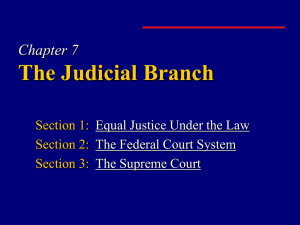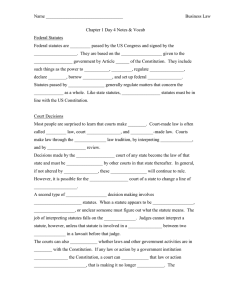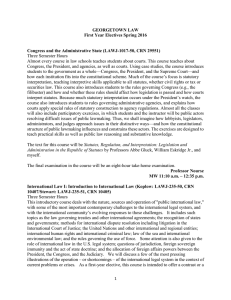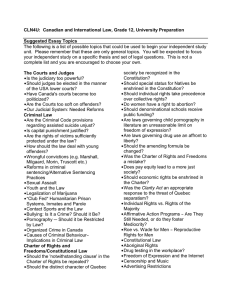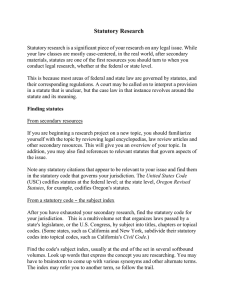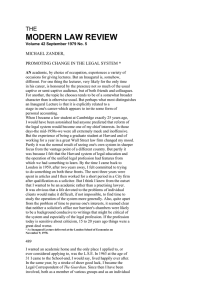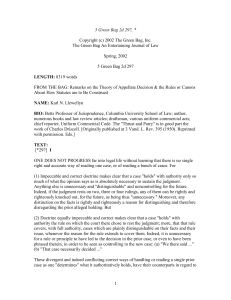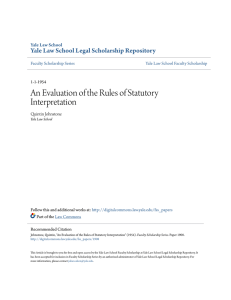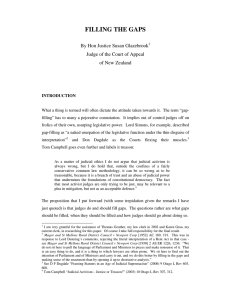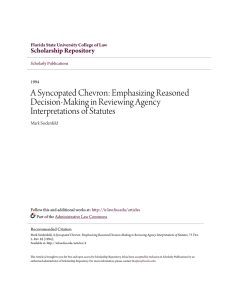FIRST WEEK ASSIGNMENT CRIMINAL LAW PROFESSOR KESSLER
advertisement
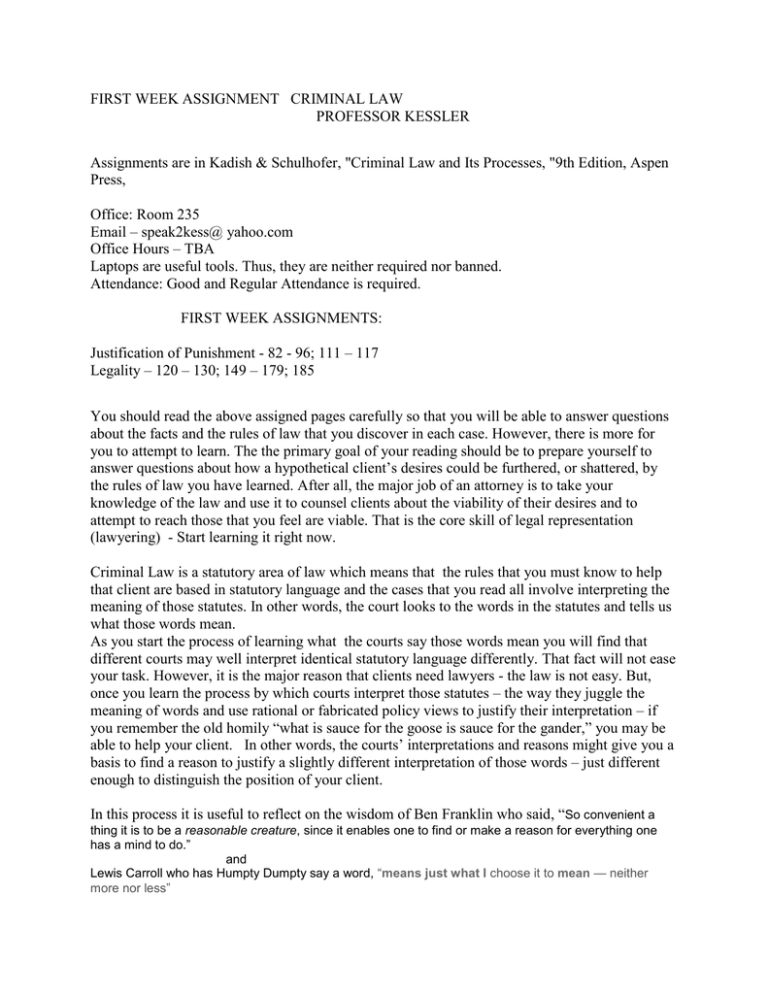
FIRST WEEK ASSIGNMENT CRIMINAL LAW PROFESSOR KESSLER Assignments are in Kadish & Schulhofer, "Criminal Law and Its Processes, "9th Edition, Aspen Press, Office: Room 235 Email – speak2kess@ yahoo.com Office Hours – TBA Laptops are useful tools. Thus, they are neither required nor banned. Attendance: Good and Regular Attendance is required. FIRST WEEK ASSIGNMENTS: Justification of Punishment - 82 - 96; 111 – 117 Legality – 120 – 130; 149 – 179; 185 You should read the above assigned pages carefully so that you will be able to answer questions about the facts and the rules of law that you discover in each case. However, there is more for you to attempt to learn. The the primary goal of your reading should be to prepare yourself to answer questions about how a hypothetical client’s desires could be furthered, or shattered, by the rules of law you have learned. After all, the major job of an attorney is to take your knowledge of the law and use it to counsel clients about the viability of their desires and to attempt to reach those that you feel are viable. That is the core skill of legal representation (lawyering) - Start learning it right now. Criminal Law is a statutory area of law which means that the rules that you must know to help that client are based in statutory language and the cases that you read all involve interpreting the meaning of those statutes. In other words, the court looks to the words in the statutes and tells us what those words mean. As you start the process of learning what the courts say those words mean you will find that different courts may well interpret identical statutory language differently. That fact will not ease your task. However, it is the major reason that clients need lawyers - the law is not easy. But, once you learn the process by which courts interpret those statutes – the way they juggle the meaning of words and use rational or fabricated policy views to justify their interpretation – if you remember the old homily “what is sauce for the goose is sauce for the gander,” you may be able to help your client. In other words, the courts’ interpretations and reasons might give you a basis to find a reason to justify a slightly different interpretation of those words – just different enough to distinguish the position of your client. In this process it is useful to reflect on the wisdom of Ben Franklin who said, “So convenient a thing it is to be a reasonable creature, since it enables one to find or make a reason for everything one has a mind to do.” and Lewis Carroll who has Humpty Dumpty say a word, “means just what I choose it to mean — neither more nor less”

